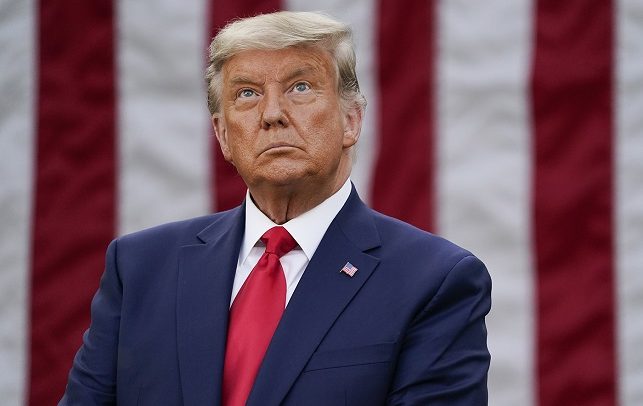President Donald Trump
Foreigners including Ghanaian students, workers and visitors living in the United States (US), have been urged to comply with a new US immigration law that requires all foreign nationals to register with authorities and carry proof of their legal status everywhere they go.
The new directive under an executive order by President Donald Trump is now being enforced by the US Department of Homeland Security (DHS) and the US Citizenship and Immigration Services (USCIS), and applies to all non-US citizens aged 18 and above, including Ghanaians, Nigerians, and other African nationals.
According to the USCIS, persons considered a “foreign national” or “alien” under US law must have proof of their legal status; such as a Green Card, visa documents, or the I-94 entry record with them at all times.
“Once an alien has registered and appeared for fingerprinting (unless waived), DHS will issue evidence of registration, which aliens over the age of 18 must carry and keep in their personal possession at all times,” USCIS said in its statement.
All non-citizens aged 18 and above, visitors, students, workers, Green Card holders, Canadians staying more than 30 days, and children under 14 must be registered.
Once a non-citizen turns 14, they are required to re-register and undergo biometric processing (fingerprinting) within 30 days.
“All aliens 14 years of age or older who were not registered and fingerprinted (if required) when applying for a US visa and who remain in the United States for 30 days or longer, must apply for registration and fingerprinting. Similarly, parents and legal guardians of aliens below the age of 14 must ensure that those aliens are registered,” the statement further explained.
Those who were previously registered have been advised to update their information using the new online system. A new form, G-325R, must be completed, and biometric data will be collected unless exempted. Failure to comply with the law could lead to fines, misdemeanour charges, and possible jail time. Under the law, local law enforcement, such as traffic police, can ask foreign nationals for proof of registration or legal status.
By Vera Owusu Sarpong


